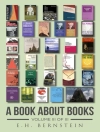New Perspectives on Contemporary German Science Fiction demonstrates the variety and scope of German science fiction (SF) production in literature, television, and cinema. The volume argues that speculative fictions and explorations of the fantastic provide a critical lens for studying the possibilities and limitations of paradigm shifts in society. Lars Schmeink and Ingo Cornils bring together essays that study the renaissance of German SF in the twenty-first century. The volume makes clear that German SF is both global and local—the genre is in balance between internationally dominant forms and adapting them to Germany’s reality as it relates to migration, the environment, and human rights. The essays explore a range of media (literature, cinema, television) and relevant political, philosophical, and cultural discourses.
Table of Content
Introduction: Science Fiction in German – An Overview Ingo Cornils / Lars Schmeink (University of Leeds, UK / Hafen City University, Germany).- Going Round in Cycles: Time Travel and Determinism in
Dark (2017–) Juliane Blank (University of the Saarland).- White German Agency in
Transfer,
Die kommenden Tage,
Hell Evan Torner (University of Cincinnati, USA).- Popular German Science Fiction Film and European Migration Gabriele Müller (York University, Canada).- Daring Dystopia: Finding the Female Voice in Formal Experiments Klaudia Seibel (University of Giessen, Germany).- ‘Last Men’ in the Dystopian Novel of Contemporary German Literature Kristina Mateescu (University of Heidelberg, Germany).- Dirk C. Fleck’s Maeva Trilogy Peter Seyferth (Independent Scholar, Munich, Germany).-
Quality Land: Marc-Uwe Kling’s Social Commentary as ‘Funny Dystopia’ Joscha Klüppel (University of Oregon, United States).- Part III: New Criticism – Climate Change and Ecology.- Ecocriticism in Contemporary German SF Laura Zinn (University of Giessen, Germany).- Misogyny and climate change in Karen Duve’s
Macht.- Clarisa Novello (University of Aberdeen, Scotland).- Apocalyptic Greeneries: Climate, Vegetation and the End of the World in Ransmayr, Kracht and Fritsch Solvejg Nitzke (Technical University of Dresden, Germany).- The Language of Ice in the Anthropocene: The Case of
Der Schwarm, Eiszeit In Europa? and Eistau Matteo Gallostampino (University of Bergamo, Italy).- Part IV: New Identities – Gender, Health, Posthumanism.- From Fiction to Society: Gender-Neutral Pronouns in the Near Future Novel Wasteland Aşkın-Hayat Doğan (Independent Scholar, Berlin, Germany).- The Paradoxes of Illness and Health in Juli Zeh’s Corpus Delicti: Ein Prozess Mylene Branco (Université Luxembourg).- Nach der Langeweile. Boredom, Critical Posthumanism and Critique of Culture Hanna Schumacher (University of Edinburg, Scotland).- Transhumanism Revisited: Dietmar Dath’s
Abschaffung der Arten Roland Innerhofer (University of Vienna, Austria).
About the author
Lars Schmeink is Research Fellow at the Europa-Universität Flensburg, Germany. For 2022, he has received a Leverhulme Visiting Professorship at the University of Leeds, UK. He is a researcher in the Future Work research project of the German Ministry of Education at the Karlsruhe Institute of Technology. He is the founder of the Gesellschaft für Fantastikforschung and has served as president of the board from 2010 to 2019. He has published widely on science fiction, the fantastic, and popular culture, including The Routledge Companion to Cyberpunk Culture (co-editor, 2020); Cyberpunk and Visual Culture (co-editor, 2018); Biopunk Dystopias: Genetic Engineering, Society, and Science Fiction (2016), Collision of Realities (co-editor, 2012), and Fremde Welten (co-editor, 2012).
Ingo Cornils is Professor of German Studies at the University of Leeds, UK. He has published widely onscience fiction, edited two special issues of the academic journal literatur für leser on German language science fiction co-edited, with Ricarda Vidal, the volume Alternative Worlds: Blue-Sky Thinking since 1900 (2015), and authored of the monograph Beyond Tomorrow: German Science Fiction and Utopian Thought in the 20th and 21st Century (2020).












